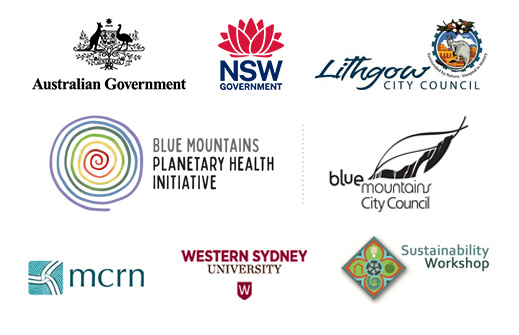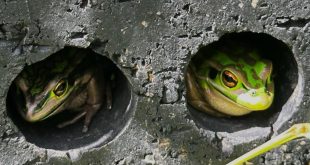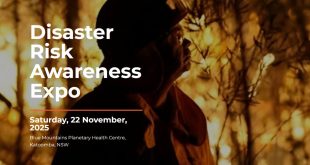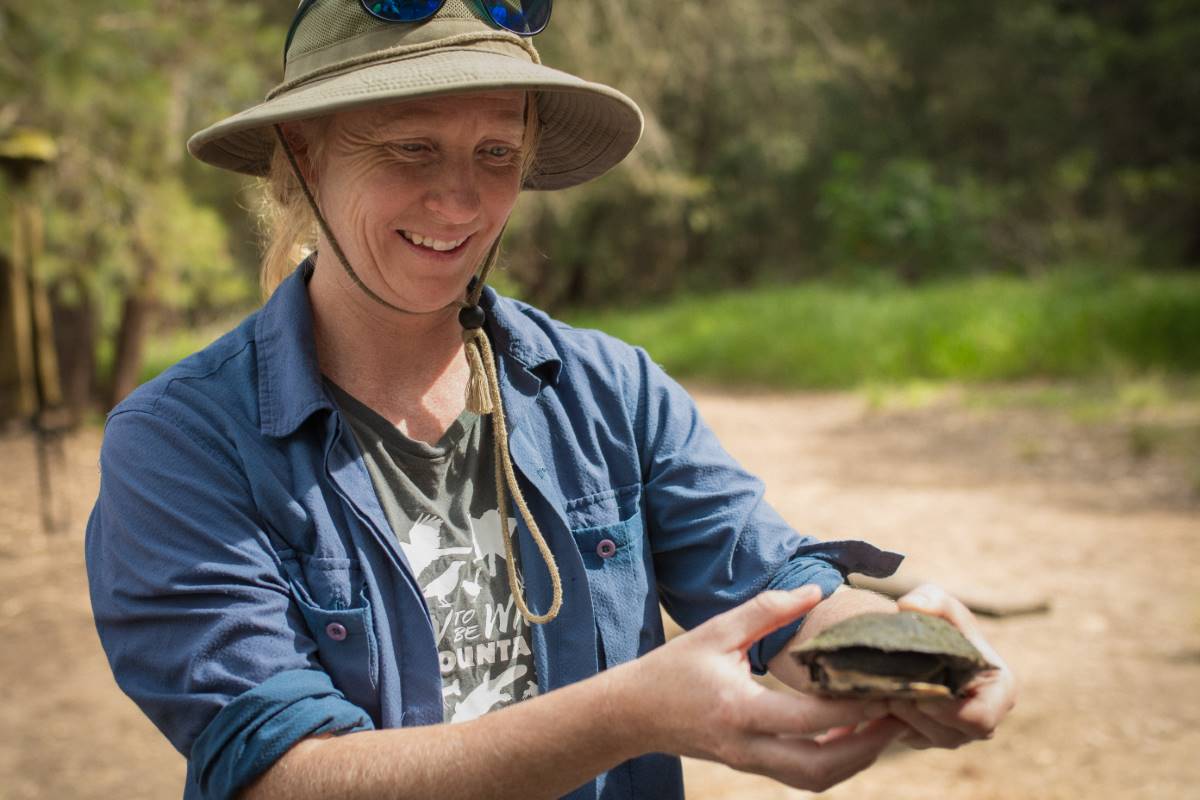
Amy St Lawrence holding a six-year-old Eastern long-necked turtle. (Photo: Will Goodwin)
Story by Julie Nance
Glenbrook Lagoon is like a retirement village for turtles, where the majority of the freshwater reptiles are senior citizens. With 95 out of 100 eggs eaten by foxes, the odds are against baby turtles entering the world. However, things are now looking up for the lagoon’s turtle population. The floating eco habitat Turtle Island is proving to be a safe haven, and a community-led nest protection strategy is also making a big difference.
Key Points:
- Freshwater turtles lay 8 to 24 eggs at once, an attractive meal for foxes if nests are not protected.
- Every individual, not just the experts, can help protect turtle nests with short online training.
- Even a small act like moving a turtle off the road can help boost dwindling turtle populations.
On a rainy afternoon in late October Amy St Lawrence was at Glenbrook Lagoon, finishing up a full day of collecting water samples at sites across the Blue Mountains.
The Blue Mountains City Council Aquatic Systems Officer spotted two Eastern long-necked turtles digging nests nearby on the sandy lagoon bank. It was a rare sight, particularly as it was a little early for the November to January nesting season. “I was so excited; I’d never seen that before,” Amy says.
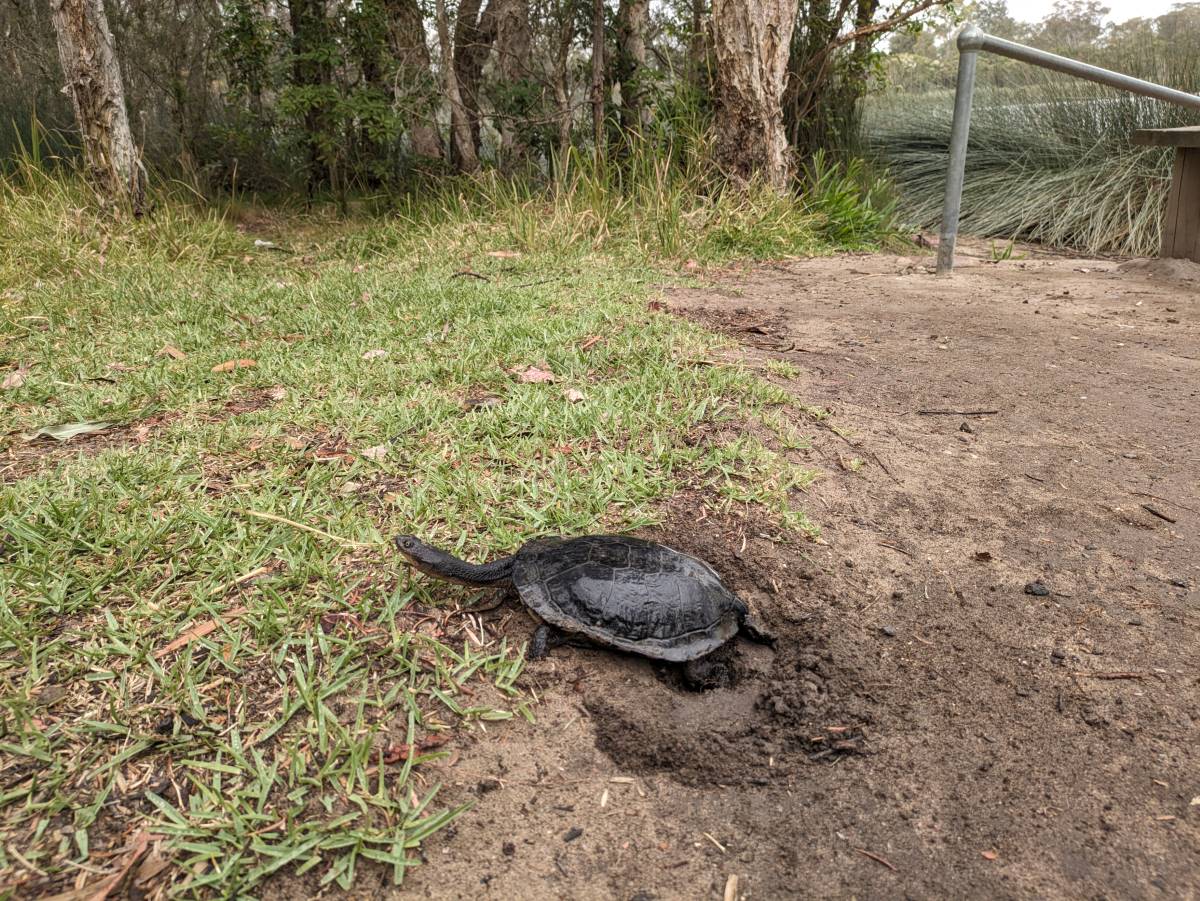
A rare find: one of three Eastern long-necked turtles spotted nesting at Glenbrook Lagoon in late 2023. (Photo: Amy St Lawrence)
Amy sent colleague Will Goodwin a photo of the turtles as he was preparing for a large school excursion the next day.
He recalls: “It was an amazing feeling getting that photo because we care so much about these animals and getting to see this valuable thing happening was such a privilege.
“It started this massive race against the clock, a panic to protect the nests before sunset.”
The two nesting Eastern long-necked turtles with a curious swamp hen. (Video: Amy St Lawrence / Julie Nance)
Amy watched one of the turtles move into the bush after being disturbed by nearby swamp hens. She reluctantly left the remaining turtle as she had to rush the time-sensitive water samples to a lab in Smithfield.
In the meantime, Will was busy getting supplies to protect the nests, drawing on training from the 1 Million Turtles Conservation Program website. He also made signs alerting the public to be careful.
When Amy got back to the site with her own supplies, a mother and young daughter, and a father and son, were keeping watch. They had witnessed the laying of seven eggs into the nest, which the turtle was now covering with dirt before returning to the lagoon.
Amy and Will set to work pinning mesh over the nests and putting up signs.
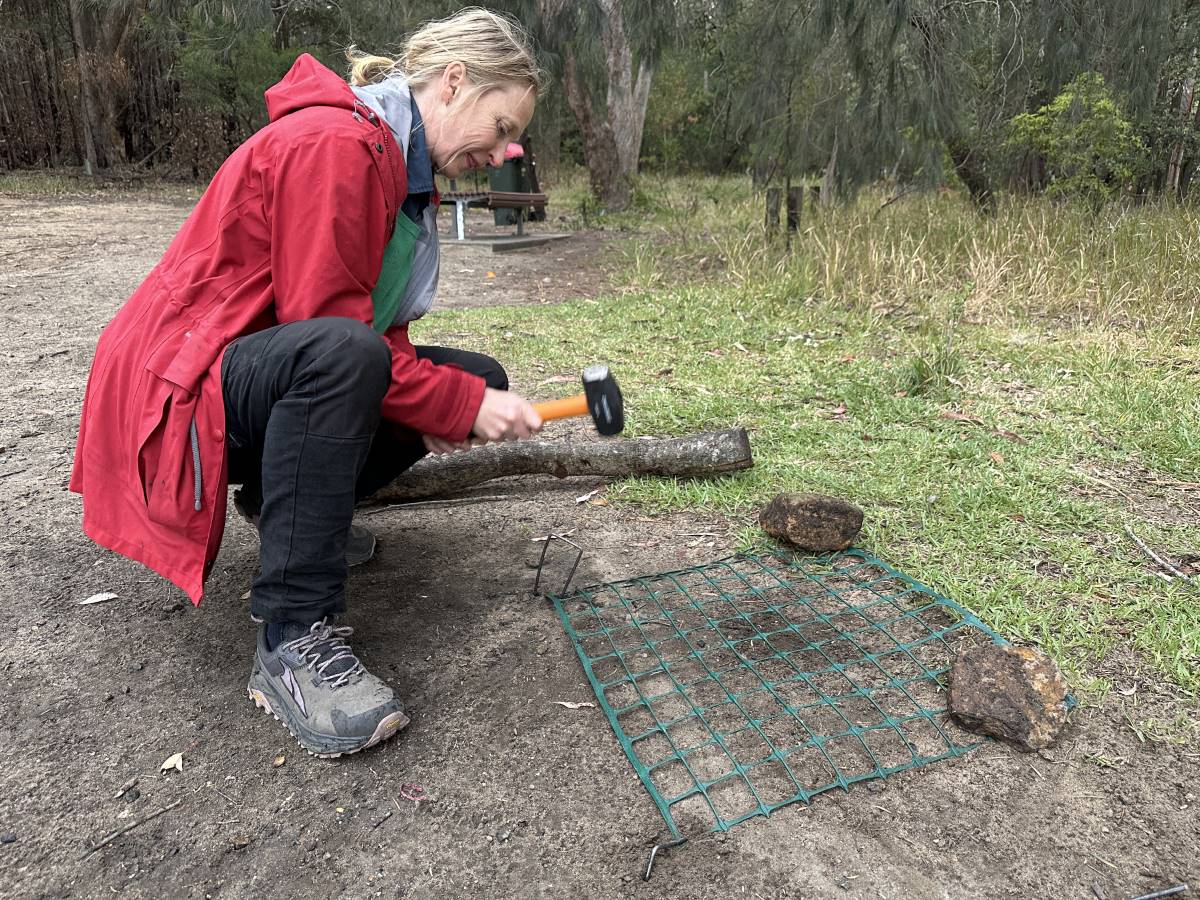
Amy laying protective mesh over a nest, using the method outlined on the 1 Million Turtles website. (Photo: Will Godwin)
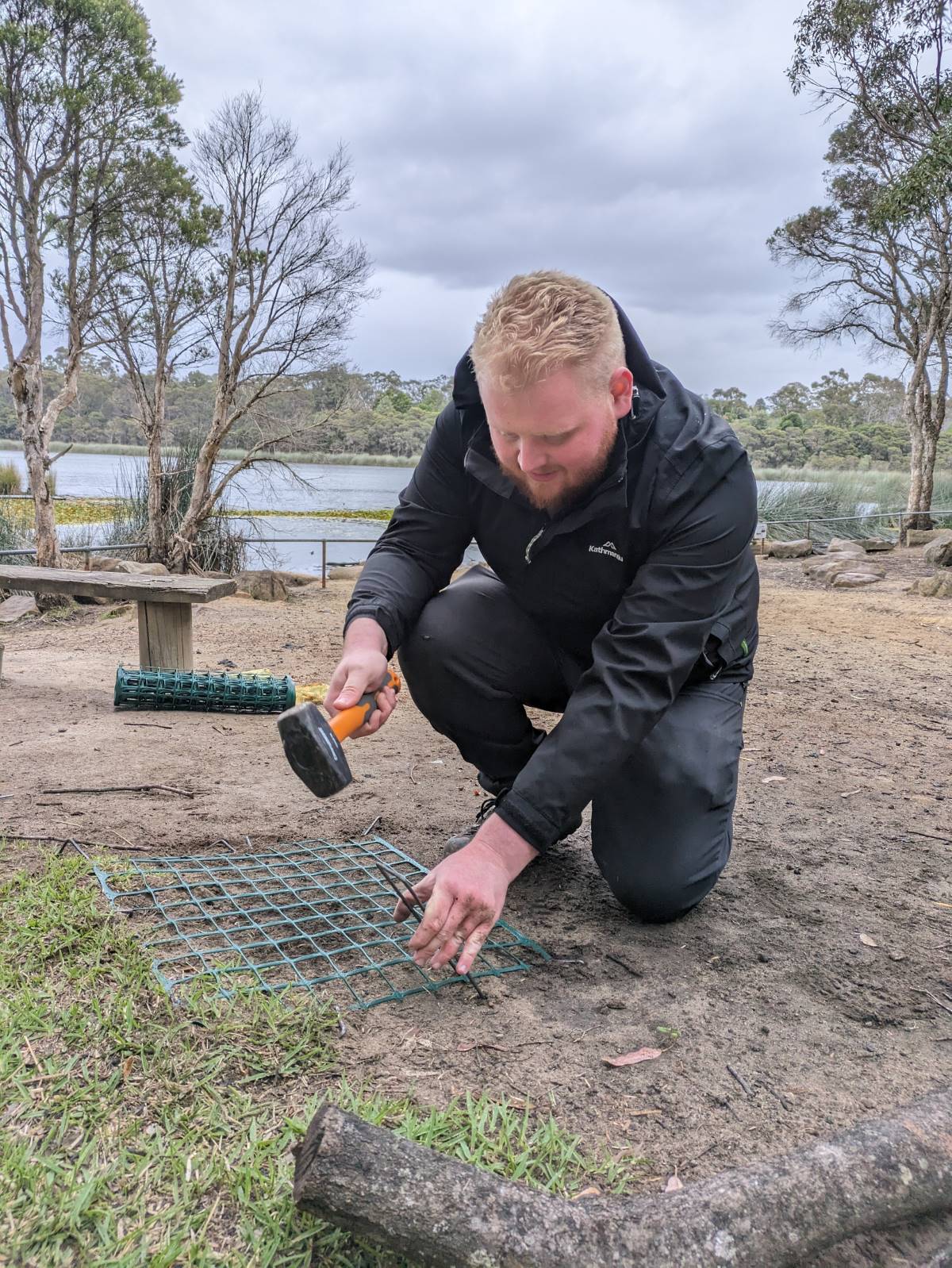
Will also protecting a turtle nest. (Photo: Amy St Lawrence)
The father who had helped keep vigil told Amy and Will he had seen another nest close to his home on the other side of the lagoon. They went and protected that nest and left the family with materials and instructions on how to protect further nests.
Since that exciting day Amy has seen another turtle nesting at a different part of the lagoon while she was water sampling.
“I’d never seen it before and I ended up seeing three turtles nesting within a few weeks,” she says. “The father we helped was really interested in finding more nests and protecting them. It has been amazing seeing the response from the community.”
Freshwater turtles nationally are under threat and in decline due to fox predation, widespread drought, habitat loss and vehicle strike.
To help address their plight, a floating eco habitat, Turtle Island, was built in early 2020 at Glenbrook Lagoon, a few metres from the sandy bank where the two turtles were spotted nesting. A collaboration between the Glenbrook Lagoon Bushcare group, Blue Mountains City Council and Western Sydney University (WSU), the nesting place is proving to be successful for the small residents.
During the breeding season over the 2022/23 summer, two entire clutches (batches of eggs) successfully hatched on the island.
Will says a gamechanger for the survival of the turtles is the actions of community members. Glenbrook Lagoon Bushcare volunteers built the island and organised the plantings. Other locals and interested volunteers have joined as Citizen Scientists.
WSU Associate Professor Ricky Spencer, who was the innovator behind the island, pioneered the Citizen Science program 1 Million Turtles. To become a Citizen Scientist, you need to complete short online training to understand how to protect the nests correctly in an ethically responsible way while minimising any potential risk to yourself or any species.
Dr Spencer’s community-led turtle conservation work won him an Australian Eureka award last year for Innovation in Citizen Science. By downloading his TurtleSAT, the first fully integrated citizen science app focusing on monitoring turtles, you can enter nest protection and other data.
Turtle Island with nesting boxes and vegetation native to the lagoon. It has been placed far enough away from shore to deter foxes from swimming to it and eating the turtle eggs and occasional waterfowl hatchlings. Many species of birds are found on and around the island. (Video: Julie Nance)
Will says: “I view what is happening at Glenbrook Lagoon as a massive success story in the sense that things are looking up for the turtles. It is something where everyone can get involved and Turtle Island is one element of that.
“Turtles have had a rough trot but we’re now at the stage where things are starting to actually work. We’ve got nest protection that works, an island that works and we’ve got people who care.” – Will Godwin
Turtles play an important role in maintaining water quality by consuming dead and rotting carcasses from the water, reducing the risk of algal blooms.
Freshwater turtles can live for more than 100 years. Will says turtle surveys at Glenbrook Lagoon indicate most of the turtle inhabitants are old. However, it was a promising sign when Dr Spencer and students caught and then released a six-year-old Eastern long-necked turtle in Autumn 2022.
Turtles are cold blooded animals, so they need to be able to get their body temperature up to go about their business including feeding and breeding. A turtle basking platform has also been erected near Turtle Island, designed to help adult turtles vulnerable to predators including dogs.
“Their shell is made out of keratin which is the exact same stuff that goat horns, and other treats we give our dogs, are made out of,” Will says. “Unfortunately, if dogs are off leash and they’re not controlled, the turtles end up being a chew toy. The basking platform helps the turtles but also allows anyone to get up close and study them, entering important information into the TurtleSAT app.”
Will says having individuals out there looking for turtles, recording their observations, and protecting the nests is what will make the biggest impact.
“Hopefully we will have cute little baby turtles taking their first swim at Glenbrook Lagoon within a few months. It’s an exciting time.”
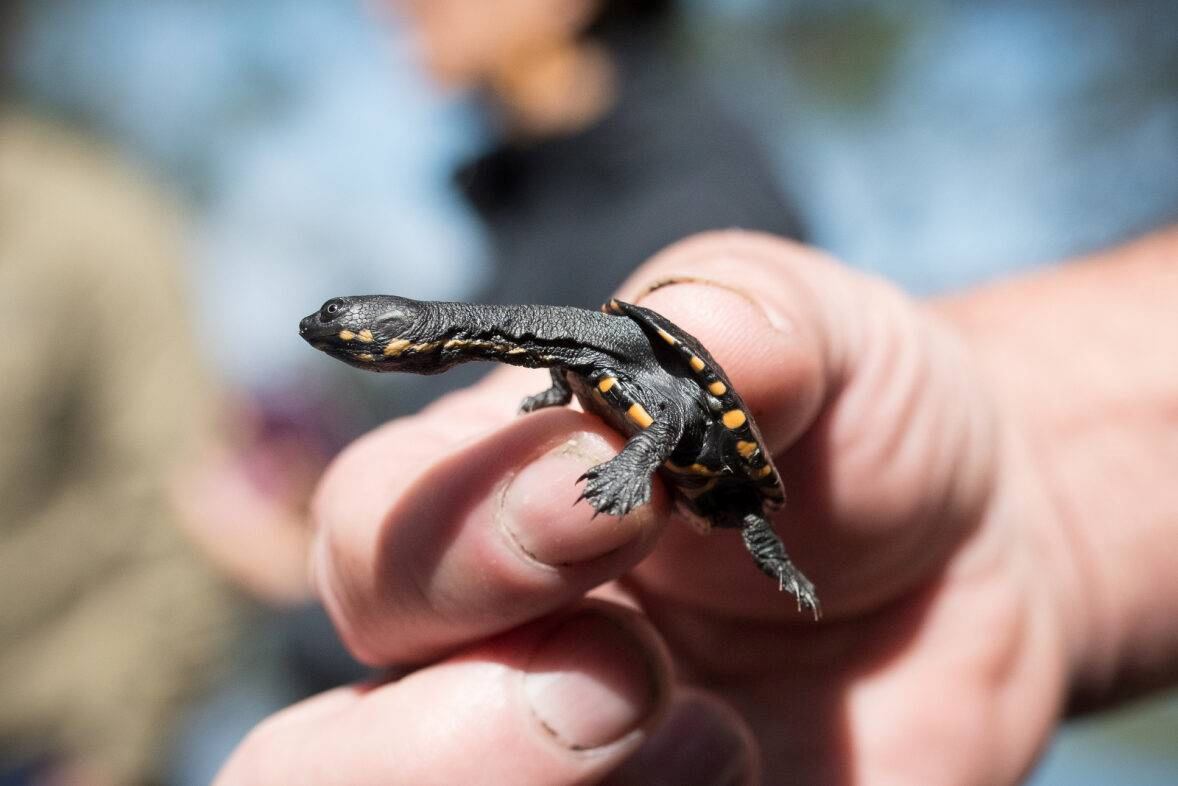
An eight-week-old Eastern long-necked turtle. Will says: “This is the goal; we’re all working towards seeing more little guys like this cruising around.” (Photo: Will Goodwin)
Take Action:
- Find out more about Associate Professor Ricky Spencer’s innovative Citizen Science project 1 Million Turtles and how you can get involved by reading It’s November and 1 Million Turtles are counting on you!
- Look out for turtles and their nests. Log information, including any turtle injuries, into TurtleSAT.
- Blue Mountains residents who have done the 1 Million Turtles training can be supported with free materials. Email Will at wgoodwin@bmcc.nsw.gov.au with proof of completion of the training.
- If you see a turtle crossing the road and it is safe to do so, carefully pick it up and immediately put it down on the other side of the road in the direction it was heading. That one little act could mean decades more years of breeding for that turtle.
- Learn about the amazing work of Valley Heights resident Shane Davies: The Turtle Saviour.
- Find out how Council is protecting waterways in the Blue Mountains: https://www.bmcc.nsw.gov.au/environment/waterways
- Find out how to join a Bushcare group: https://www.bmcc.nsw.gov.au/bushcare
Share this article:
This story has been produced as part of a Bioregional Collaboration for Planetary Health and is supported by the Disaster Risk Reduction Fund (DRRF). The DRRF is jointly funded by the Australian and New South Wales governments.
